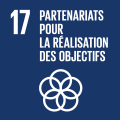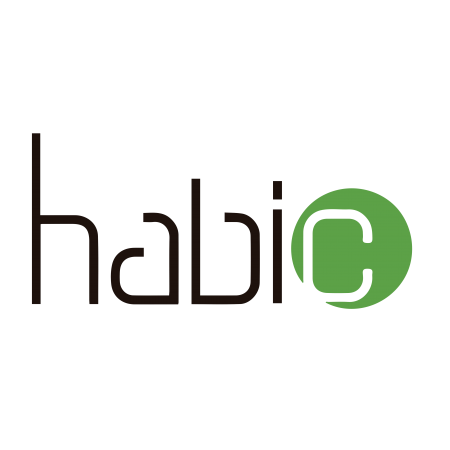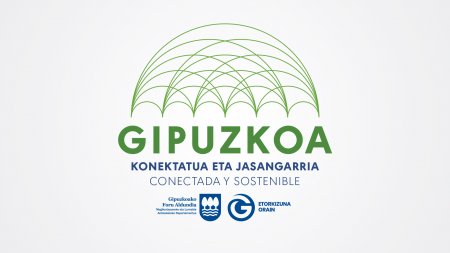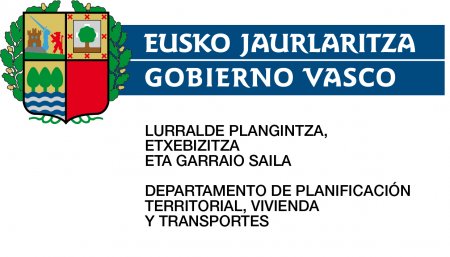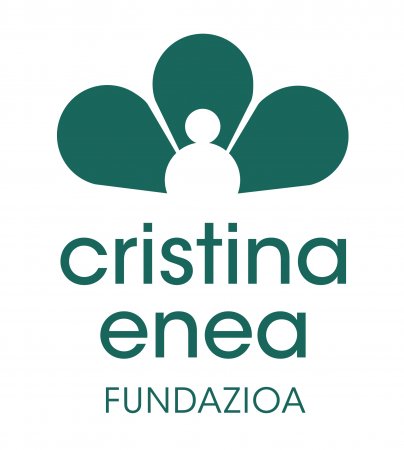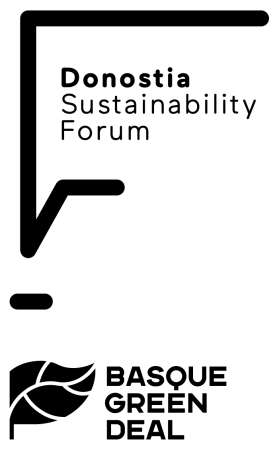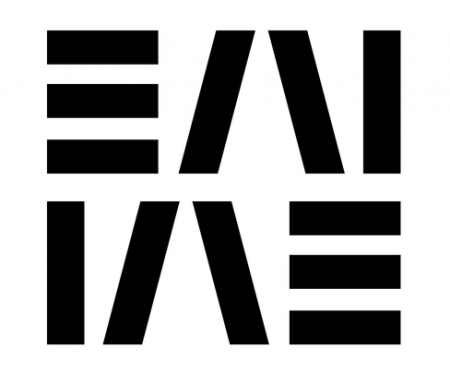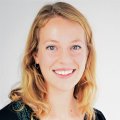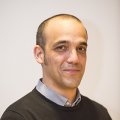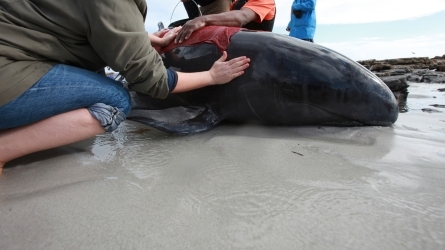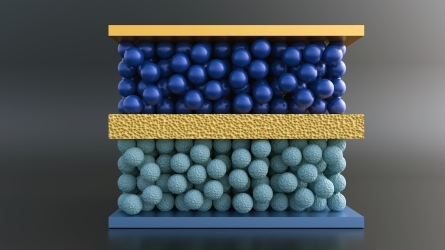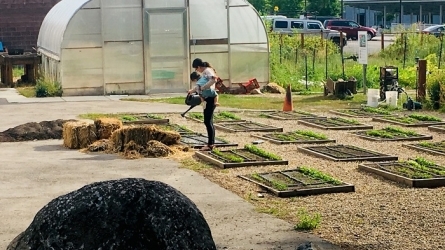
Estrategias de diseño circular: ciudades, edificios y productos de ciclos cerrados
Description
Este Curso de Verano se celebrará de forma presencial y también habrá la posibilidad de participar en directo online a través de ZOOM. Selecciona en el proceso de matrícula cómo vas a participar: presencialmente u online en directo.
La economía actual, basada en un modelo lineal de extracción de recursos, producción, consumo y, finalmente, generación de residuos, necesita cada vez mayor cantidad de recursos naturales para dar continuidad a su funcionamiento. Para la obtención de esos bienes con los que se abastece el modelo se ejerce sobre los habitats y los ecosistemas una enorme presión que en la actualidad sobrepasa la biocapacidad del planeta. Asimismo, las acciones transformadoras, desde la actividad extractiva-productiva hasta la eliminación de los residuos o del deshecho, son fuente de contaminación que degradan los habitats. Las consecuencias medioambientales, y sus derivadas económicas y sociales, que está generando este modelo exige hacer una revisión profunda sobre el mismo, e impulsar una transición a un sistema circular ecológicamente consciente donde se minimicen la extracción de recursos, la producción de residuos y la generación de contaminantes.
En este contexto, la edificación, que abarca desde la construcción urbana al mobiliario de los edificios, es uno de los sectores que mayor demanda de recursos desencadena y, también, mayor generación de residuos provoca. En este Curso de Verano se abordarán los principios de la economía circular aplicados en el ámbito de la edificación. Se acometerá la temática desde un enfoque amplio, iniciando el análisis de los entornos urbanos como metabolismos que gestionan flujos de materia y energía, pasando por la aplicación de las ideas de circularidad en los edificios y llegando hasta los principios del diseño de ciclo cerrado en productos y materiales. En el Curso se podrán adquirir los conceptos generales de la transición del modelo lineal al circular, y conocer metodologías y ejemplos reales para poder aplicarlos.
Objectives
Exponer la necesidad y las claves de la economía basadas en ciclos cerrados, y analizar los fundamentos de la transición desde la economía lineal a la circular.
Conocer criterios de circularidad a aplicar en diseño urbano, arquitectura e interiores, a nivel de proyecto y de ejecución.
Conocer y divulgar casos reales donde se han aplicado estos criterios, desde sistemas urbanos o territoriales completos al diseño de edificios y la pequeña escala.
Profundizar en el ecodiseño, analizando la sostenibilidad tanto a nivel de materiales como de sistema completo de producto o proyecto.
Conocer casos reales de producto ecodiseñado, sistema de recirculación y servitización en el sector.
Divulgar la economía circular a nivel de urbanistas, arquitectas/os, fabricantes, diseñadoras/es de espacios y diseñadora/es de producto.
Activity directed to
- University students
- Students not from university
- Teachers
- Professionals
- All public
Program
13-09-2021
DÍA 1 SESIÓN DE MAÑANA EN PALACIO MIRAMAR
Registro
Presentation by the Director of the activity
- Xabier Perez de Arenaza Salas Cluster Habic
- Iker Mardaras Larrañaga Comisión de Sostenibilidad del COAVN Gipuzkoa
- Juana Otxoa-Errarte Goikoetxea Euskal Herriko Arkitektoen Elkargo Ofiziala - Presidenta de la Delegación de Gipuzkoa
- Mónica Pedreira Lanchas Diputación Foral de Gipuzkoa - Directora de Medio Ambiente
“Del modelo lineal al circular: una aproximación conceptual al entorno construido“
- Luis M. Jiménez Herrero Asociación para la Sostenibilidad y el Progreso de las Sociedades - PARTICIPA VÍA ZOOM
“Ciudades circulares: aplicando un modelo económico regenerativo al desarrollo urbano“
- Kaitlyn Dietz ICLEI – Local Governments for Sustainability
Round table: “Implantación del pensamiento circular en nuestra actividad y entorno“
- Iker Mardaras Larrañaga (Moderator)
- Luis M. Jiménez Herrero PARTICIPA VÍA ZOOM
- Kaitlyn Dietz
Break
“Design for deconstruction: a holistic and performance driven approach towards circular buildings“
- Christine Lemaitre German Sustainable Building Council
“Madaster, the register that facilitates circularity in the built environment“
- Pablo Van Den Bosch Madaster Foundation
“Circularidad y ciclabilidad en la construcción“
- Iñaki Alonso Echeverria Satt - Arquitecto
Round table: “Estrategias circulares en el diseño arquitectónico“
- Xabier Perez de Arenaza Salas (Moderator)
- Christine Lemaitre
- Pablo Van Den Bosch
- Iñaki Alonso Echeverria
Break
DÍA 1 SESIÓN DE TARDE EN CRISTINA ENEA FUNDAZIOA. EDIFICIO "CAPILLA"
“Proyección "Closing the Loop". Un film de Graham Sheldom. (Proyección en inglés con subtítulos en español)“
- Iker Mardaras Larrañaga
14-09-2021
DÍA 2 EN INSTITUTO DE ARQUITECTURA DE EUSKADI
Presentation by the Director of the activity
- Xabier Perez de Arenaza Salas
- Pablo García Astrain Gobierno Vasco - Director de Vivienda, Suelo y Arquitectura
“Cradle to Cradle: buildings like trees, buildings as material bank“
- Michael Braungart EPEA Internationale Umweltforschung GmbH - Director
“Proyectos demostradores de ecoinnovación de producto“
- María Gorostegi Oteiza Ondarreta
- Goio Borge Zicla
“Fachadas como servicio: modelos de negocio para una economía circular“
- Juan Azcarate Delft University of Technology.
Round table: “Sistemas y productos circulares para la edificación y el equipamiento“
- Xabier Perez de Arenaza Salas (Moderator)
- Michael Braungart
- María Gorostegi Oteiza
- Goio Borge
- Juan Azcarate
Break
“Visión y misión del Marco Level(s). ¿Palanca de cambio del sector de la edificación europea hacia la circularidad y la sostenibilidad?“
- Borja Izaola Green Building Council España
“Sistemas y productos circulares para la edificación y el equipamiento: certificados ambientales de productos y edificios“
- Ana de la Puente Salazar IK Ingeniería - Arquitecta
“Ecoinnovación y compra verde. Ambientalizar pliegos“
- Gorane Ibarra González Ihobe. Sociedad Pública de Gestión Ambiental del Gobierno Vasco.
“La gestión de los residuos de construcción y demolición en la economía circular“
- Aitor Sáez de Cortazar Junguitu Ihobe. Sociedad Pública de Gestión Ambiental del Gobierno Vasco.
Round table: “Herramientas e iniciativas para traccionar la circularidad en el sector“
- Iker Mardaras Larrañaga (Moderator)
- Borja Izaola
- Gorane Ibarra González
- Ana de la Puente Salazar
- Aitor Sáez de Cortazar Junguitu
Synthesis
Directors
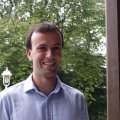
Arquitecto por la Universidad de Navarra (2012) y Máster en eficiencia energética y sostenibilidad por la EHU/UPV (2013), su carrera profesional ha estado ligada a la innovación en el ámbito de la arquitectura y el urbanismo. Durante los años 2013 y 2014 lideró el proyecto uTree, el desarrollo de mobiliario urbano con capacidad de generación eléctrica y colaboró con distintos estudios de arquitectura y empresas. Desde 2015 forma parte del equipo de Habic, Cluster del Equipamiento, Madera y Diseño de Euskadi, donde coordina distintos proyectos relacionados con la innovación empresarial en el sector de fabricantes de productos para el equipamiento de edificios. Ha colaborado con empresas, arquitectos e interioristas para fomentar el uso de la madera en los proyectos de arquitectura e interiorismo, así como para mejorar las capacidades de las empresas y los productos en madera
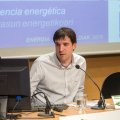
Iker Mardaras Larrañaga
Euskal Herriko Arkitektoen Elkargo Ofiziala - Colegio Oficial de Arquitectos Vasco-Navarro
Arquitecto Urbanista por la Universidad de Navarra (2002), Diplomado en Medio Ambiente y Paisaje (2002) y Máster en Construcción Sostenible y Eficiencia Energética (2013). Asimismo, es Máster en Dirección y Gestión de Empresas (2020). Desde 2009 trabaja en el Departamento de Medio Ambiente del Ayuntamiento de San Sebastián y desde 2015 es miembro de la Comisión de Sostenbilidad del COAVN en la delegación de Gipuzkoa.
Speakers

Iñaki Alonso Echeverria
He is an urban architect from the Madrid University of Architecture (ETSAM) since 1998. Founder and partner-director of the architecture studio sAtt, dedicated to the development of new contemporary architecture projects with ecological criteria. He is part of the advisory council of the Ecohabitar Institute and is a patron of the El PUENTE foundation for social innovation. Former president of the Association for the measurement and dissemination of Ecology in architecture, the Ecometro, a system for measuring ecology parameters in architecture projects. He is the founder and former president of SANNAS and is a permanent professor at the Ecohabitar Institute. Professor of the Master of CONSCIOUS ARCHITECTURE at the Thuban Group Center for Higher Studies. He has twenty years dedicated to research, development and entrepreneurship of sustainable architecture projects dedicated to social and environmental innovation.
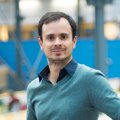
Juan Azcarate
He is a real estate developer and investor, architect, and building technologies engineer with academic and professional experience in The Netherlands, California, and Mexico. He is owner and CEO of GearCraft Real Estate, a Rotterdam-based sustainable real estate development firm and investment fund focusing on building and monument energy transformations and long-term property management. He is also PhD researcher at TU Delft, where he works on the interface between building technologies, façade engineering, and real estate development and management through the practical implementation of Circular Economy principles and Product-Service Systems. Between 2012 and 2014 he worked as BIM project coordinator at the headquarters of Gehry Technologies, in Los Angeles.

Goio Borge
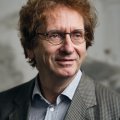
Michael Braungart
Michael Braungart teaches at Leuphana University in Lüneburg. He is also the founder of EPEA Internationale Umweltforschung GmbH in Hamburg, the cradle of Cradle to Cradle. In addition, Michael Braungart is co-founder and scientific director of McDonough Braungart Design Chemistry (MBDC) in Charlottesville, Virginia (USA) as well as founder and scientific director of the Hamburg Environmental Institute (HUI). He is the co-founder of the Cradle to Cradle design concept, which is the basis for the European Union's Green Deal and Circular Economy programs. Together with organizations and companies from different industries, Michael Braungart designs eco-effective products, business models and smart material pooling. In 2019, he was awarded the Goldene Blume von Rheydt (Golden Flower of Rheydt), Germany's oldest environmental protection prize, for his work, among others.

Ana de la Puente Salazar
Architect (construction specialty) from the San Sebastián Higher Technical School of Architecture (UPV-EHU) and Master's Degree in Property Valuation and Damage Assessment from the Polytechnic University of Catalonia. She has developed projects both in the field of Life Cycle Analysis, specializing in the calculation of the Carbon Footprint, and in sustainable building. She has accredited training as a "Breeam Advisor" for Housing and as a "reference" in the HQE building certification system.
Kaitlyn is an architectural engineer graduated from the University of Texas (USA) with a master's degree in International Cooperation and Urban Development (Technical University of Darmstadt, Germany), and a master's degree in Sustainable Humanitarian Architecture (International University of Catalonia). She has a background in research on sustainable and healthy buildings and equitable urban development. Kaitlyn coordinates circular cities and sustainable construction projects at ICLEI as part of the Sustainable Public Procurement and Circular Economy team of the European secretariat. Thus, she collaborates with several European cities with the aim of moving towards more circular systems, both in the phase of innovation and implementation of solutions (H2020 CityLoops), and in the creation of strategic lines (European Circular Cities Declaration, Big Buyers Initiative) . She advises the public sector on the transition to a low-carbon built environment through public procurement.
Arquitecto por la Escuela de Arquitectura y Paisaje de Burdeos (2001), y postgrado DEA en proyectos ar-quitectónicos por la Escuela de Arquitectura de San Sebastián (2008). Actualmente en fase de redacción de la tesis doctoral en la Escuela de Arquitectura de San Sebastián. En su carrera profesional ha trabajado en la redacción del Plan Especial de Protección del Patrimonio Urbanístico Catalogado de San Sebastián (2003 – 2006) y ha colaborado con el estudio Leibar & Seigneu-rin para el desarrollo de proyectos en Ecobarrios. En 2002 fundó el estudio HTC Arquitectos, el cual se dedica a la edificación y rehabilitación. Además de su carrera como arquitecto, fue presidente de la Asociación ATARI Cultura Arquitectónica (2010 – 2016) y Concejal de Cooperación al Desarrollo del Ayuntamiento de Zarautz (2015 – 2017). En la actualidad, es Director de Vivienda, Suelo y Arquitectura en el Gobierno Vasco.

María Gorostegi Oteiza
Ondarreta mesas y sillas S.L.

Gorane Ibarra González
Ihobe, Área técncia
Degree in Chemical Sciences, specializing in Industry, Faculty of Science, University of the Basque Country. Since 1999, she has been working for the Basque Government's Public Company for Environmental Activities, IHOBE. Since joining IHOBE, he has worked in the areas of green purchasing, ecodesign, environmental labels and environmental information as project director. He is currently in charge of the Basque Green Public Procurement Program. It also carries out the technical management of the European Union Ecolabel through the competent body of the Basque Government's Vice-Minister for the Environment. She also performs support work for the Basque Ecodesign Center, mainly in its line of traction in the supply chain and the deployment of green private purchasing among its members.

Borja Izaola
He is an architect from the Technical University of Munich (TUM), with three postgraduate degrees in humanities. He has extensive experience in European project management (drafting, coordination, technical development, external evaluation, external monitoring) since 2006. He currently coordinates the LIFE Levels Project from Green Building Challenge Spain (GBCe).

Luis M. Jiménez Herrero
He is a Doctor and Graduate in Economic and Business Sciences (CM) and a Technical Aeronautical Engineer (UPM). He has worked professionally in the fields of Engineering, Economics, Environmental Management and Sustainable Development, both for the public and private sectors. He has been a professor at the Faculty of Economic Sciences of the Complutense University of Madrid, teaching Environment and Sustainable Development. He is currently an Honorary Professor at the UCM. He is an expert in the study of sustainability and sustainable development processes and has numerous publications and books on these subjects and on the circular economy. Added to this is his work as Executive Director of the Observatory of Sustainability in Spain between 2005 and 2013, as well as his current responsibility as President of the Association for the Sustainability and Progress of Societies (ASYPS) . He is a member of the Advisory Committee and a regular contributor to the Sustainable City magazine.

Christine Lemaitre
Since 2021 co-founder and Chair of the Climate Positive Europe Alliance (CPEA). Since 2019 founder and CEO of the Knowledge Foundation. Since 2019 Member of the Board of Directors of the Cradle to Cradle Product Innovation Institute. 2017 Co-initiator of the international planner initiative "Building Sense Now". Since 2016 Member of the Sustainability Council of the ZIA (German Property Federation). Since 2016 Member of the Advisory Board for the Network Building Culture Baden-Württemberg. 2016 – 2020 Member of the Board of Directors of the World Green Building Council (WGBC). 2009 – 2010 Head of the System department at the German Sustainable Building Council (DGNB). 2008 Doctoral thesis on "Topology optimization of adaptive frameworks". 2003 – 2007 Scientific assistant in the field of teaching and research at the Institute for Lightweight Structures and Conceptual Design (ILEK) at the University of Stuttgart. 1995 – 2000 Studies in civil engineering at the University of Stuttgart.

Juana Otxoa-Errarte Goikoetxea

Mónica Pedreira Lanchas
Diputación Foral de Gipuzkoa
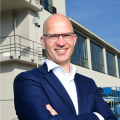
Pablo Van Den Bosch
Pablo van den Bosch is co-founder of Madaster and Board Member of Madaster Services. He studied public affairs at the Erasmus University Rotterdam and was partner in a global consultancy that he co-founded in 2003. Pablo left in 2016 to invest his time and experience in new ventures that aim to deliver a positive social impact. He teamed with Thomas Rau, a renowned architect who created energy-neutral buildings since the nineties. Based on Thomas vision that “Waste is material without an identity”, they and four others created Madaster, the register for products and materials in the built environment. Pablo initially focused on establishing the not-for-profit Madaster Foundation, which supervises the Madaster platform development and operational services. Currently Pablo fulfills the role of Board Member Public Affairs and Internationalization
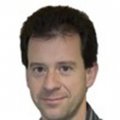
Aitor Sáez de Cortazar Junguitu
Ihobe
Degree in Biological Sciences from the University of Salamanca. Master in Environmental Engineering from the University of the Basque Country. Since 1999 he has been the Project Manager of Ihobe (Public Society for Environmental Management of the Basque Government) in the areas of Eco-efficiency / Ecodesign and Waste. In that period he has carried out design, development and management of initiatives such as: -Ihobe-Line service of environmental consulting to companies and citizens. -Ihobe Environmental Observatory: Surveillance service and technological antenna on environmental issues. -Demonstration projects in Circular Economy. -Legal, technical and support instruments and publications on waste management, in particular construction and demolition waste. -Legal, technical and support instruments and publications on Sustainable Building. -Green public procurement and procurement criteria and associated instruments in construction works.
Registration fees
| Face-to-face | Until 07-06-2021 | Until 13-09-2021 |
|---|---|---|
| 0 EUR | - | |
| - | 77,00 EUR | |
| - | 45,00 EUR | |
| - | 54,00 EUR | |
| - | 65,00 EUR |
| Live online | Until 07-06-2021 | Until 13-09-2021 |
|---|---|---|
| - | 77,00 EUR | |
| - | 45,00 EUR | |
| - | 54,00 EUR | |
| - | 65,00 EUR |
Venue
DAY 1 Miramar Palace (Afternoon of day 1 in Cristina Enea) DAY 2 Basque Institute of Architecture
Gipuzkoa
Sustainable development goals
Agenda 2030 is the new international development agenda approved in September 2015 by the United Nations. This agenda aims to be an instrument to favour sustainable human development all over the planet, and its main pillars are the eradication of poverty, a reduction in equality and vulnerability and fostering sustainability. It is a unique opportunity to transform the world up to 2030 and guarantee human rights for all.

9 - Industry, innovation and infrastructure
Build resilient infrastructures, promote inclusive and sustainable industrialisation and foster innovation. Key issues: reliable, sustainable, resilient and quality infrastructures, inclusive and sustainable industrialisation, modernisation, clean and environmentally rational industrial technologies and processes, scientific research and improvement of technological capabilities, universal access to ICTs.
More information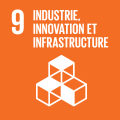
11 - Sustainable cities and communities
Make cities and other human settlements inclusive, safe, resilient and sustainable. Key issues: access to suitable housing and basic services that are secure and affordable, suitable and sustainable transport systems, inclusive urban planning, participative planning and management, protection of cultural and natural heritage, air-quality, green zones, and connections between urban, peri-urban and rural areas.
More information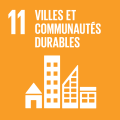
12 - Responsible consumption and production
Guarantee sustainable modalities of consumption and production. Key issues: sustainable management and efficient use of natural resources, reduction of chemical particles released to the atmosphere, water and soils, reduction of waste products, recycling, reuse and reduction, sustainable practices, sustainable public procurement, sustainable lifestyles, rationalisation of inefficient subsidies for fossil fuels.
More information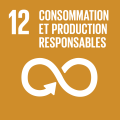
17 - Partnerships for the goals
Strengthen the means of implementation and revitalise the World Alliance for Sustainable Development. Key issues: mobilisation of resources, 0.7% of GDP for official overseas development aid, finances, cooperation in technology and innovation, ecologically rational technologies, skills building, universal and multilateral trade system, coherence on the legislative and institutional levels, availability of data, supervision, indicators and accountability.
More information